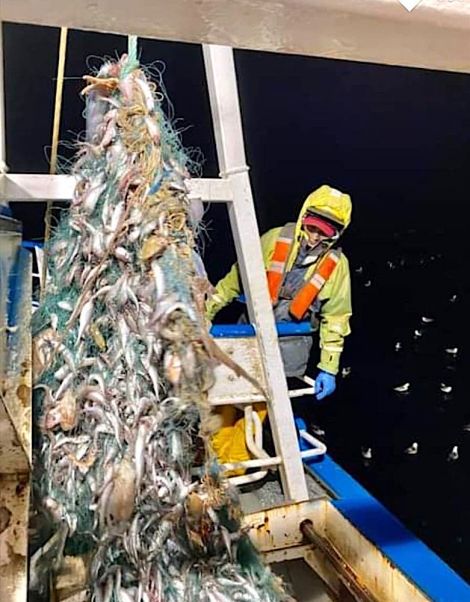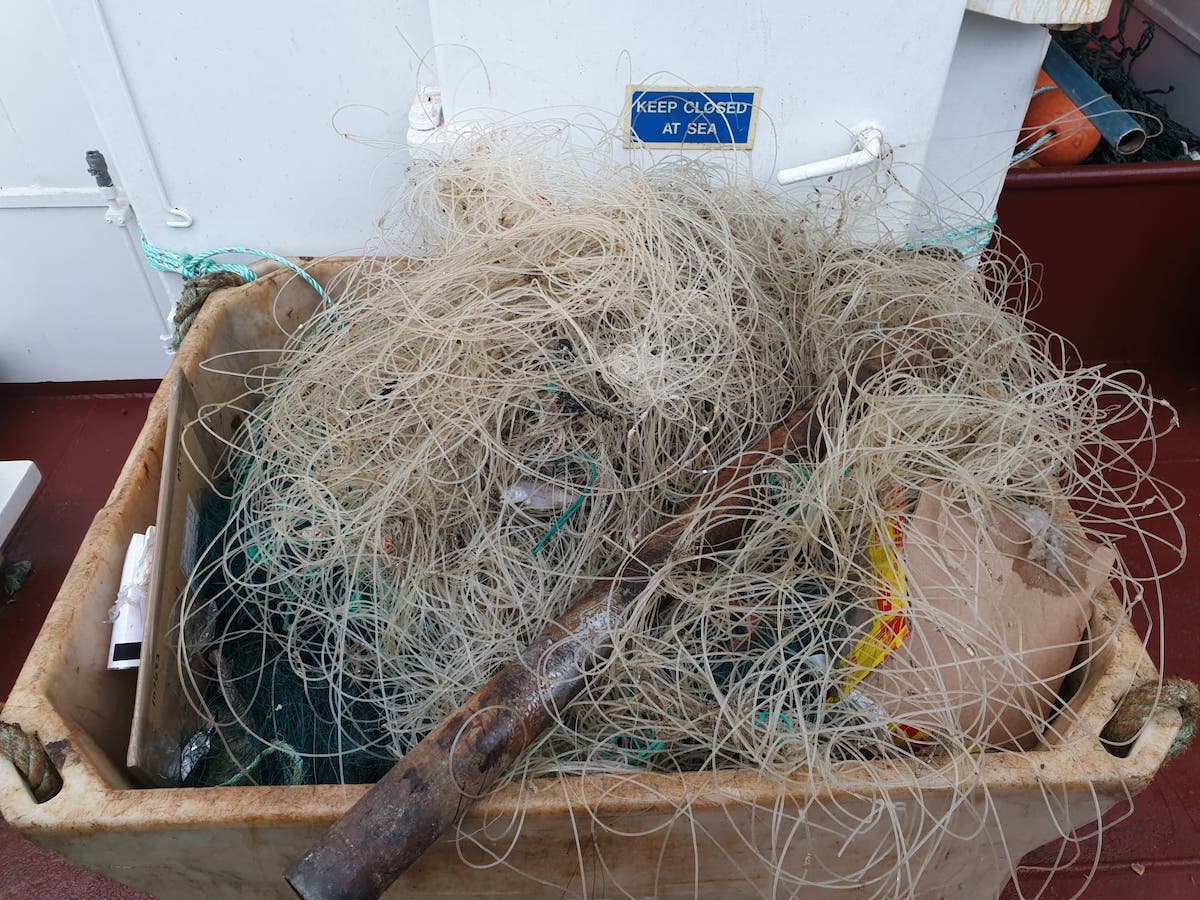
A discarded gill net hauled up by a local trawler and taken ashore for disposal. LOCAL fishermen have again raised concerns about the amount of rubbish such as discarded gear they come across when fishing the waters around Shetland.
They say they constantly haul up stripped back gill nets and large quantities of long lines, bundled up and thrown over board allegedly by European fishing vessels.
A Scottish vessel finding a gill net in their catch a few days ago. The issue is not new but appears to have become worse over recent months around Shetland.
Shetland Fishermen’s Association (SFA) said discarded nets not only pose a navigational hazard, but they also pollute the seas with plastic, damage marine life and undermine the reputation of the local industry when pictures of beaches littered with rubbish making the rounds.
One local fisherman who preferred not to be named told Shetland News: “It is well known fact that when these [EU] vessels land their catches, they never take ashore any rubbish.”
A number of photos taken by crew on various vessels illustrate the extent of the problem.
The fisherman added: “The lorries which come from Spain to fetch their catch always load large bails of new gill netting, but none is ever taken ashore for discard.
“No authority seem to check whether or not these vessels have any rubbish to land ashore when they come to port. A vessel with 15-20 men at sea for two to three weeks will be generating a lot of rubbish. We constantly find Spanish food wrappers on the seabed.

All fishing ports in Scotland provide skips for fishermen to get rid of their domestic waste, and most ports are also participating in the Fishing for Litter initiative which encourages fishing crew to take ashore any rubbish they haul up in their nets.
The number of Spanish and French owned gill netters operating mainly to the west of Scotland as far north as Shetland is a constant source of dispute, and occasional confrontation, as large areas of sea are covered by gill nets.
They usually land at Scrabster, Kinlochbervie or Lochinver from where their catch is taken by truck to southern Europe.
SFA executive officer Simon Collins said they have been discussing their concern with government agencies such as Marine Scotland and the Maritime and Coastguard Agency (MCA).
He said one part of the solution will be to limit the amount of gill netters allowed to fish in UK waters, and that is something Marine Scotland is in the process of working out proposals for when the Brexit transition period has come to an end next year.
Collins added: “It is a growing problem around Shetland simply because of the increased presence of these vessels.
“One particular thing that might help is the idea of marking nets so that you know where is comes from when found discarded. The issue is to find a technical way of doing that.
“There is also a reputational issue for us. The whole fishing industry gets contaminated with this, because fishing gear look like fishing gear to a passer-by or a casual tourist, whereas local fishermen are proud of doing their bit in tidying up the mess others leave behind.”
By Hans J Marter 28 August 2020





























